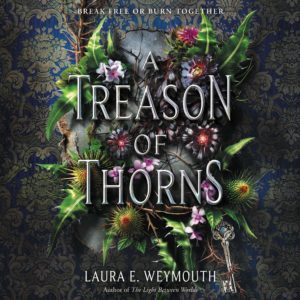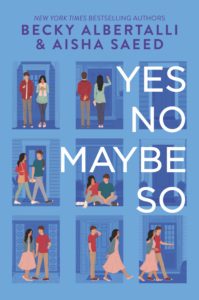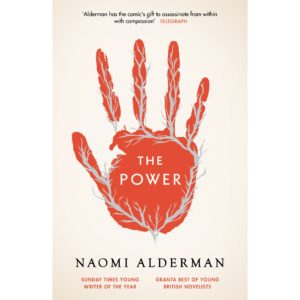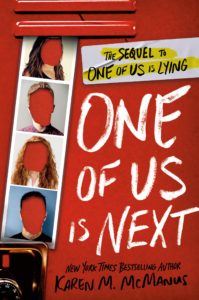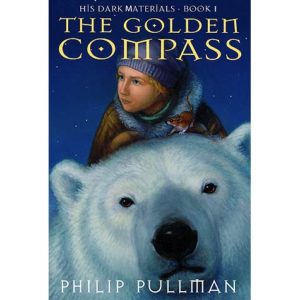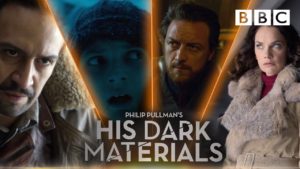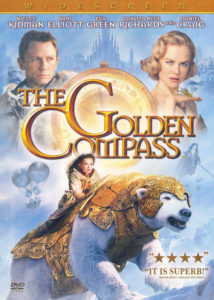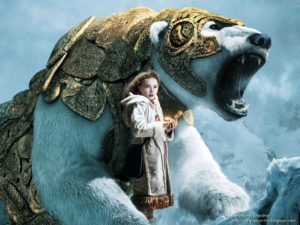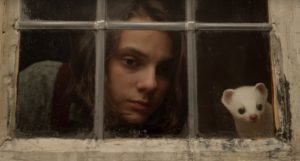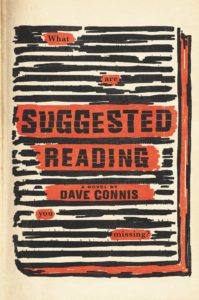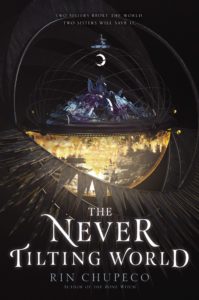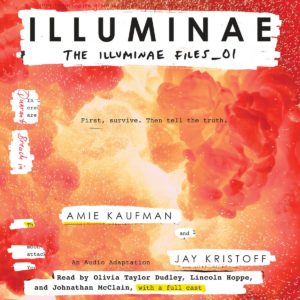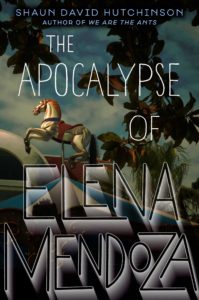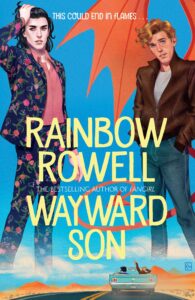 When I first heard about Wayward Son, I was dubious. After all, the first book (Carry On) was essentially a Harry Potter fanfic from a book about fanfiction, and it seemed as if it had been pretty thoroughly wrapped up. The premise of the second book is a time honored favorite among fanfiction authors as well— a road trip. Hearing this, I naturally assumed that it would be a fluffy, feel-good story about the main characters post-adventure shenanigans. Perfect, I thought, for a quick, cute read as I waited for the final book in my favorite trilogy to be released. I would already know the characters and the world, Rowell is always fun, it will be a fast, fairly easy read. I mean, it’s a road trip fic.
When I first heard about Wayward Son, I was dubious. After all, the first book (Carry On) was essentially a Harry Potter fanfic from a book about fanfiction, and it seemed as if it had been pretty thoroughly wrapped up. The premise of the second book is a time honored favorite among fanfiction authors as well— a road trip. Hearing this, I naturally assumed that it would be a fluffy, feel-good story about the main characters post-adventure shenanigans. Perfect, I thought, for a quick, cute read as I waited for the final book in my favorite trilogy to be released. I would already know the characters and the world, Rowell is always fun, it will be a fast, fairly easy read. I mean, it’s a road trip fic.
Going in with these expectations I was somewhat surprised when right from the start the book did its best to defy conventions. The initial chapters address the fallout from the events of book one. Simon is suffering from depression as he struggles with a bevy of repressed issues, ranging from the loss of his powers to figuring out that has been in love with Baz this entire time. Stuck between the worlds of Mages and Mundanes by his lost magic and newly gained wings and tail, Simon has been living with Penny and Baz as they all try and figure out their lives after the events of Carry On. As the story progresses, we see development in the characters, but this angst persists in a way that is unusual in books of its kind.
It is here that the series’ quick POV switches and short chapters truly shine, as we alternate between Baz, Simon, Penny and occasionally Agatha away in California. Because of the short chapters and informal format, Rowell is able to switch points of view without disrupting the narrative, a feat few multiperspective books manage to achieve. It is this seamless transition that allows the reader to see different parts of the story, without being taken out of the storytelling. This is incredibly important as a reader, since all of the main charactes are extremely unreliable, and only when we are allowed to compare and contrast their perspectives on a situation does that situation become clear.
Still, the tone doesn’t quite work. It is a subversion of the usual road trip tropes, yes, but the pacing is a little off, and the end result is a book that feels like the author tried to put multiple plots into one novel. It is readable, and it is entertaining, but the plot was weaker than that of the first book. The villains in particular felt like fillers, a big baddie that could be easily defeated in one book and a blaze of glory. Which would have been fine, except that a recurring conflict througout the book was dealing with the four main character’s mental health and their struggle with various traumas. This ended up as a ridiculously underutilized plot point considering that it had so much more potential and was far more interesting to me as a reader than the bad guys ever were.
So it is that the worldbuilding ends up being the strongest part of the book, which came as a surprise. The first book established a Harry Potter style world, you knew the general rules but that was about it and in the end that was all you really needed to know. But in book two our main characters are in a foreign country (America, which added a running gag of culture shock) and have to learn new rules and come to terms with some of the realities of the magical world. This is aided greatly by the introduction of some new characters of differing backgrounds who pop up in later chapters and give some much needed context. And while a lot of the ideas presented are as yet undeveloped, or at least underdeveloped, I have hope that further exploration will happen in book three. Overall, Wayward Son is a solid YA. You don’t want to think too hard or else it unravels, but it is engaging and fast paced enough to be forgiven.

